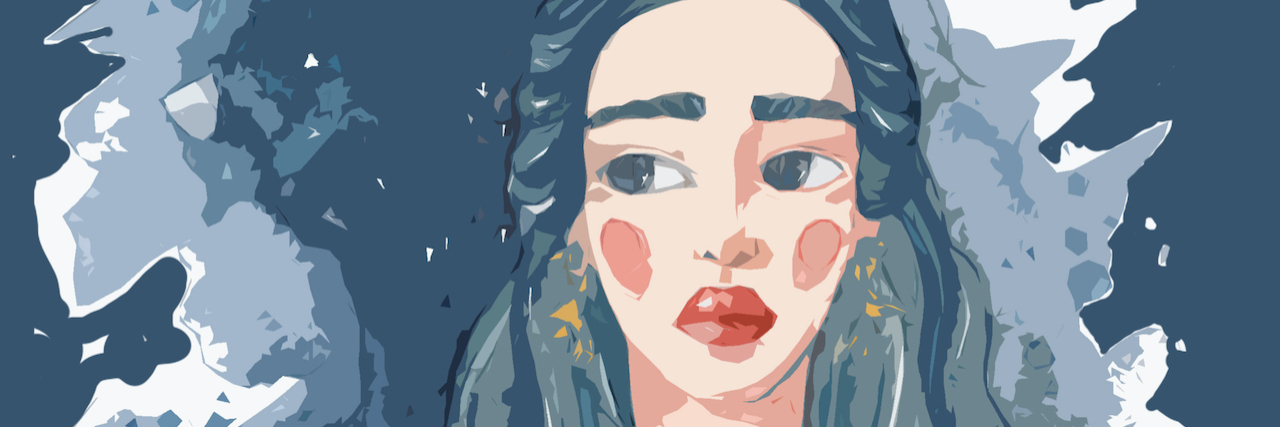“Illness is the night-side of life, a more onerous citizenship. Everyone who is born holds dual citizenship, in the kingdom of the well and in the kingdom of the sick. Although we all prefer to use only the good passport, sooner or later each of us is obliged, at least for a spell, to identify ourselves as citizens of that other place.”
— From “Illness as Metaphor” by Susan Sontag
Citizens of that other place…
That “other place,” the kingdom of the sick. It is a place with its own language and customs and landscape, a shadow-place of shadow-people.
Take care if you enter: the farther you step, the less substantial you become. There, your body blurs into something darker, slower, less stable.
To live with chronic illness is to reside at the borderland between these two kingdoms.
It is a border defined by competing identities and wary coexistence. It is a timezone of its own.
I wake up in a state of perpetual jet lag, disoriented, trying to discern where I am that day.
Today, I woke up feeling tired and heavy.
These days, I am pulled toward the shadows.
A few months ago, I bumped into a friend on the bus. She is in medical school, and we began talking about medicine and patient care. She told me about a part of her program, which pairs medical students with patients in order to gain a better understanding of the patient experience.
“So once a week I go to the home of this old woman who has Parkinson’s, and she is really amazing. She always has family over when I’m there, children, grandchildren and she cooks for everyone. She loves it and you can see that she has so much energy.” My friend smiles and then continues.
“One time though, I went with her to one of her doctor’s appointments. And she became very quiet, unsure of herself. It was like she became another person altogether.”
This is the dual citizenship that Susan Sontag describes in her book, “Illness as Metaphor.”
On one hand, we live with energy. We are active, we are able.
And then, like this woman, we fall sick and we meet that other side of ourselves.
That side that doesn’t feel like ourselves at all.
I haven’t written about this for a long time and I know why:
I was feeling good, living in the kingdom of the well, and I did not want to think about the other side. (How easy it is to disregard the other citizenship when you feel secure within one kingdom, how far apart they seem!)
And now, I am back to spending mornings at appointments in the neurology ward in the hospital. I sit in the waiting area with the other patients. The old man walking stiffly with his walker. The woman with her face half paralyzed. I am often the youngest in the room.
And from there I continue on to the university, to work in a lab with other graduate students.
Sometimes I wish I had a walker or a mask of old age to explain and make visible my “weaknesses.” (No — I retract this, I am grateful for my ability to walk and move unaided. But. My body is a deceiver, hiding invisible scars.)
And all I think about is these dual identities, about the borderland I inhabit and the tension inherent in it.
I have things to do, responsibilities and errands, tasks to complete, friends to respond to, and life to live. And I am tired. Bone tired, nerves buzzing, body in pain, I can’t, I can’t (or can I?). I am unsure, confused about what my capabilities are each day.
“I don’t know what to do,” I told a friend recently.
“You need to accept yourself where you are,” he said.
Where am I?
A Thought:
I might not know where I am, but I know some truths.
From a place of uncertainty, from this tense borderland, comes a certain clarity — a sudden insight into how simple things can be.
What matters?
- Health matters. Mental, physical — you must take care of your body first. It is the Foundation from which everything else can arise.
- Time matters. The way we spend our days is the way we spend our lives, and life is the most precious gift.
- People matter. Cultivate relationships and celebrate every point of connection.
And:
It does not matter how slowly you go, as long you do not stop.
This story was originally published on Medium.
Getty image by Olga Litvinova

